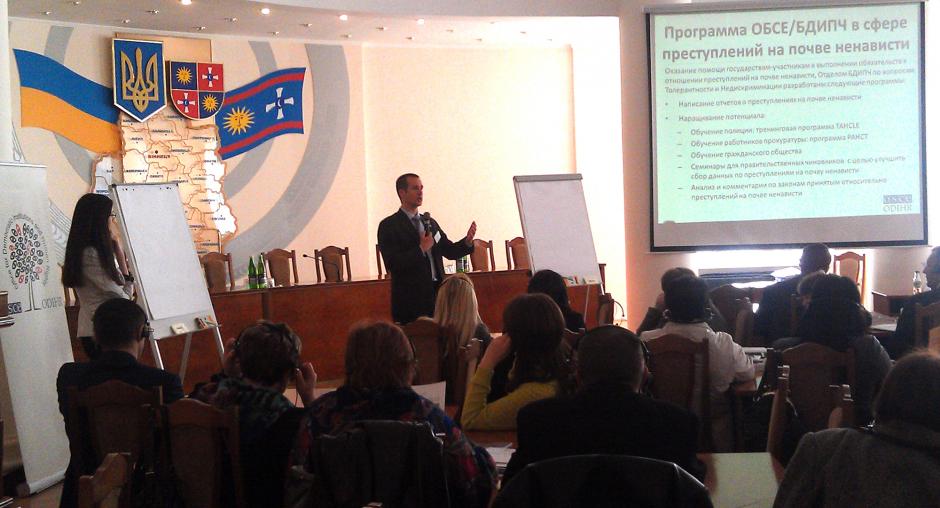OSCE/ODIHR seminar in Ukraine focuses on freedom of religion or belief, and hate crimes

Some 40 representatives from the Ukraine’s Vinnytsia Region and district administrations discussed the international standards on freedom of religion and belief, and responses to hate crime at a seminar organized by the OSCE Office for Democratic Institutions and Human Rights (ODIHR) with the support of the Vinnytsia Regional State Administration on 23 and 24 April 2015.
During the seminar, participants explored the relevant national legal framework in Ukraine and discussed good practices and challenges in ensuring freedom of religion or belief.
“Vinnytsia is one of the most ethnically and religiously diverse oblasts in Ukraine,” said Dilnoza Satarova, ODIHR Expert on Freedom of Religion or Belief. “The district and oblast administrators here have experience in dealing with diverse communities. Their sharing of relevant practices and local challenges contributed to the discussion of international standards and case law of the European Court of Human Rights.”
The second day of the seminar was dedicated to introducing the concept of hate crime and discussing ways to address it.
Ales Hanek, ODIHR’s Hate Crime Officer, said: “The local administration does not have a specific mandate to deal with hate crimes. However, its officers are often first line responders to victims of hate crime. Their ability to recognize hate crime and react with respect and sensitivity towards the victim and the victim’s community is crucial.”
The ODIHR team, along with the training participants, also observed a meeting of the Vinnytsia Council of Churches and Religious Organizations, a platform for co-ordination between religious groups and local government.
The seminar was organized as part of ODIHR’s project on “Strengthening Security of Religious and Belief Communities and Others in Ukraine”, where two regions, Vinnytsia, with the involvement of stakeholders from Cherkassy, and Odessa with involvement of representatives from Kherson and Mykolaiv, were identified to pilot capacity building activities at the regional level. These regional-level seminars will inform and complement national level events.
